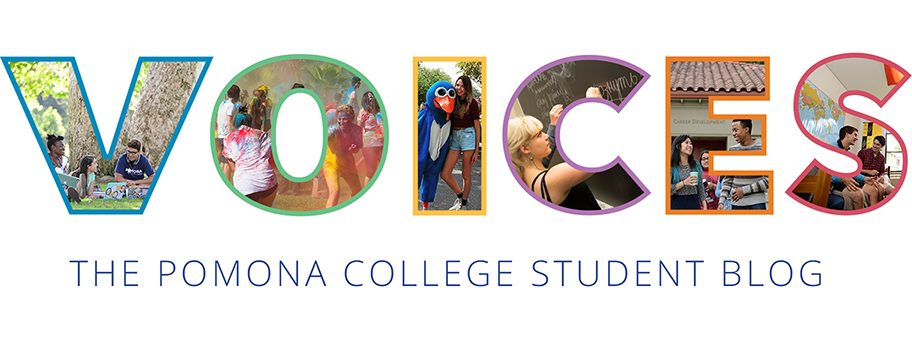
During the college application process, we – the hopeful college applicants – get the sense that we have distilled the essence of our being. That the final Common Application essay or the UCAS personal statement embodies all that is good and important or bad and relevant about us up till that point in our lives. We waltz into college with this achingly naïve sense of self-knowledge, only to realize that how we knew ourselves was only relative to the subjective circumstances we came from.
I definitely believed I knew myself when I walked into (more like flew halfway across the world to) Pomona for my International Students Orientation. But that first day I learnt an important lesson which feels all too science-y and empirical for a liberal arts school: every opinion voiced or statement made needs to be sufficiently qualified. Maybe this falls in line with what is often deemed the almost aggressive culture of political correctness at the Claremont Colleges but every time I opened my mouth to make an observation or offer a comment I felt the need, or more like an echoing urge, to explain how my own implicit biases may have colored that view. And it wasn’t easy at all. It meant I was defining and redefining myself each time I spoke to new people or even people I had began to call my friends.
Each time I was asked to weigh in on a conversation as a Muslim or an international student or a Pakistani or a woman of color or as a member of any other distinct group, I felt it was necessary to qualify my response by reminding my audience that I did not speak for the experience of that entire group but just what I had experienced personally. I did not grow up in a typical Pakistani household even if I was allowed to choose from the diverse family forms you encounter in the country. Nor can my socio-economic background be succinctly deconstructed in the sociological and economic language adopted by the Western world. Further still, each time I was asked to be the voice for any particular belief system, whether it was theology or a manmade ideology, I struggled to explain that my schooling in the British system of education and a childhood spent in such an exhilarating, culturally rich land had put me through a lifelong process of reconciling my oft-conflicting identity. This meant that I had reinterpreted every label applicable to me, till in my own mind at least, each one of them was consistent and compatible.
I was not aware of this complexity to my own personality at the start of college, and did not recognize the evolution in my thought processes till after I had left Pomona for the summer. It was upon my return home that my family pointed out how much I had changed and how I kept stating the obvious when I spoke! Yes, to them, all my qualified statements are self-evident for they can separate the inextricably intertwined threads that together define their identity and mine, but in a place like Claremont there is no one else like you in the crowd who knows exactly what you’re talking about. And while that thought itself is daunting, it makes for an inexplicably rewarding process of self-discovery, one that I have enjoyed thoroughly so far.
